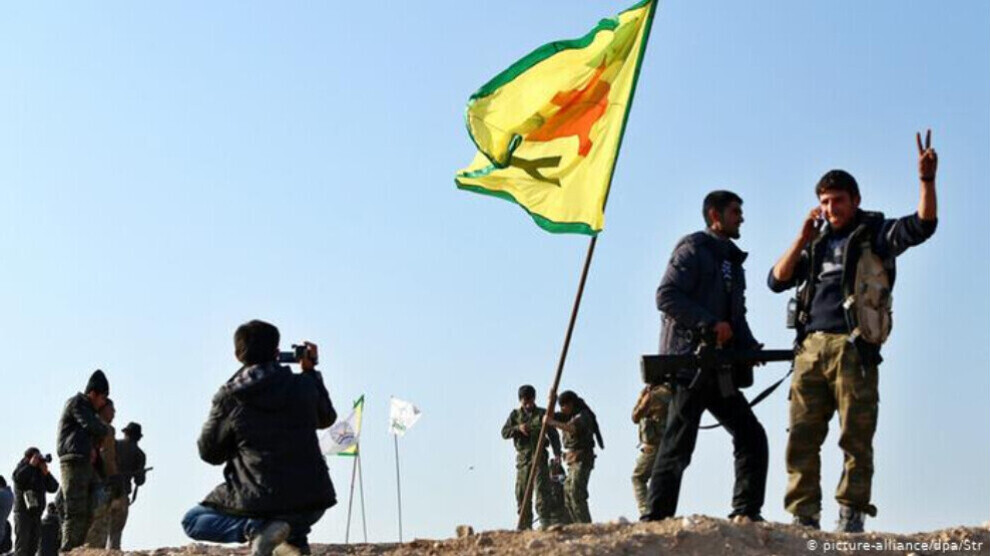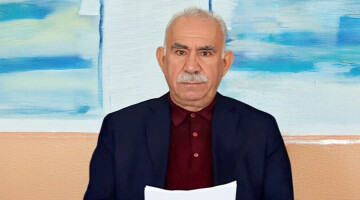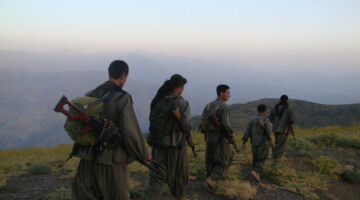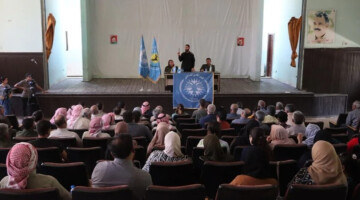On the anniversary of the liberation of Kobanê, Kurdish politician Salih Muslim from the co-executive committee of the Democratic Unity Party (PYD) spoke about the importance of Kobanê and the current attack on Sina prison in Hesekê.
Muslim explains the reasons why ISIS attacked Kobanê at the time. "If we look at the map from back then, - he said - the border from the west from Serêkaniyê to Afrin was under ISIS control. At the border with Turkey only Kobanê was not occupied. Kobanê had to fall in order to create a link between the border towns. There was no alternative to the Islamic State. The remaining cities had all surrendered, from Jerablus to Azaz, they were all under ISIS control, including Manbij. In the south, from Sirrîn to Raqqa and in the east, the area from Serêkaniyê to Girê Spî were also under ISIS rule. Only Kobanê was not. Therefore, ISIS turned against Kobanê to expand the occupation and get the entire region under control. They should take control of the city and then leave it to Turkey and its mercenaries, who would set up their own administration. That was the plan. Turkey, FSA and ISIS all wanted to attack and take over Kobanê."
"Symbol of victory and revolution"
With the defeat of the Islamic State in Kobanê, the end of the military rule of the terrorist organisation also began. Muslim continues: "Kobanê has become a symbol in that sense, a symbol of victory and revolution. That's why everyone targets Kobanê. The Syrian regime was the first to be expelled from Kobanê. Russia uses this because it supports the regime. Turkey cannot forget that its plans here have failed. For Turkey, it has become a matter of honour and it has since focused on how to take revenge here. At every opportunity, the Turkish government announces that it will conquer Kobanê."
But Kobanê also plays a very decisive role in the level of international relations and between the Kurds, according to Muslim, who adds: "Kobanê has become a matter of honour for all Kurds. Kobanê symbolized the unity of the Kurds. Which is why all forces are attacking Kobanê to destroy this legend."
"Hesekê was part of a great plan"
Regarding the Islamic State attack on Sina prison in Hesekê and the attempted mass escape, Muslim says that this was "a big plan. The Islamic State used all its experience and support. They had planned when they would attack, how they would attack, how they would flee. This plan was worked out down to the smallest detail over a period of six months. It was planned where the escapees would go, who would take them in, whether they would be taken to houses or other places, how they would flee to Turkey, how they would flee to Serêkaniyê. All of this was planned. They tried to implement that plan, but they failed. Just as the advance of the ISIS in Kobanê failed, this second attempt in Hesekê was also crushed. That should be a lesson for ISIS and its supporters. This plan was linked to the decisions of Astana. It was about the destruction of the Autonomous Administration in Northern and Eastern Syria. They had imposed embargoes before the attack, closed border crossings from all sides, and intensified attacks by Turkish mercenaries. But the plan failed."















